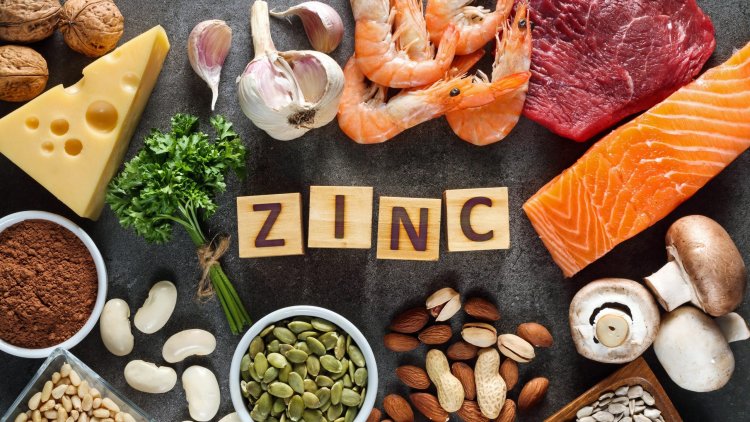Things you need to know about zinc!
Suddenly everyone is talking about zinc! But before taking this mineral you need to know 9 things.

Research conducted in Spain, presented at the European Coronavirus Conference, says that patients with COVID-19 disease who have been diagnosed with zinc deficiency find it harder to recover than those who are not in that group.
"Lower levels of zinc in the body are associated with stronger inflammation during infection," said Dr. Roberto.
1. IN WHICH FOODS IS ZINC HIDDEN?
One of the best sources of zinc in the human diet is red meat. Consumption of about 100 grams of red meat can meet as much as 25 percent of total daily zinc needs. Zinc from red meat is considered extremely useful because even small amounts of red meat in the diet increase the absorption of zinc from all other dietary sources of zinc such as legumes and other vegetables as broccoli, cauliflower, kale, and cabbage.
A varied diet is imperative to boost immunity, and with lightly stewed vegetables, a piece of red meat will give the body the strength it needs.
2. HOW MUCH ZINC DO WE NEED?
When we talk about very small amounts, it is important to know that even the smallest deviation in daily intake is enough to feel the negative impact of a lack of this mineral in the body.
Healthy adult women need 8 mg of zinc per day, pregnant women 11 mg, and breastfeeding women 12 mg.
3. HELPS MAINTAIN A HEALTHY IMMUNE SYSTEM
In our body, zinc plays a defensive role in the fight against toxins and other harmful substances that we take in every day. It also plays a key role in the production of T-cells that defend the body against viruses and cancer cells. In short, zinc deficiency threatens your immunity, making the body more susceptible to disease.
4. MAINTAINS NORMAL BLOOD SUGAR LEVELS
Insulin is a hormone responsible for maintaining a balanced sugar level which means it is crucial for health. Zinc helps synthesize, store, and release insulin in the pancreas. Thus, zinc deficiency in the body will affect insulin levels which will ultimately lead to poor eating habits and sudden changes in blood sugar levels.
5. HELPS THE BODY HEAL
Within your body, there is a constant collaboration between zinc and platelets - blood platelets that help clot blood and thus heal wounds. If you notice that scratches or wounds on your body take longer than usual to heal, zinc deficiency could be one of the reasons.

6. STIMULATES THE PROPER FUNCTIONING OF THE DIGESTIVE SYSTEM
Zinc works with proteins in every organ and supports almost 100 different enzymes in various processes, one of which is digestion. Specifically, the body is unable to fully digest and utilize nutrients without the help of zinc. Symptoms such as nausea, vomiting, or diarrhea are interpreted by many today as gluten intolerance, and it is possible that they simply do not get enough zinc-rich foods, such as yogurt, cheese, spinach or seafood.
7. IT HELPS YOU ENJOY THE TASTE OF FOOD
Zinc is necessary for the functioning of taste, so if you no longer seem to be able to distinguish flavors and odors as you used to, it may be a lack of zinc in the body. This symptom is harder to spot, and one way is to focus on what you are eating.
8. FACILITATES CONCENTRATION
Some research has shown that there is a link between zinc levels in the body and your ability to focus on a job for a long time. Scientists have noticed differences in behavior in people with different levels of zinc in the body. It is not known for sure which mechanisms are responsible for that, but the connection has been clearly noticed, Botempo notes.
9. STIMULATES THE WORK OF METABOLISM
Zinc helps digest proteins, carbohydrates and fats. The deficiency of this mineral can be manifested through a lack of energy and general slowness. Also, in people who are trying to lose weight, zinc deficiency in the body will slow down this process.
It is important to remember that zinc deficiency is not recommended to compensate through various dietary supplements because it can lead to the formation of excess which can have negative consequences for the body. Rather, enrich your menu with foods like legumes, nuts, and seeds.




























